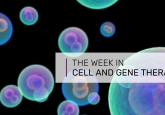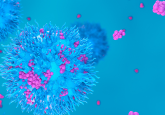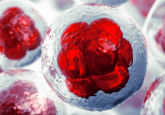Cell therapy weekly: FUJIFILM Irvine Scientific opens newly expanded Armstrong R&D Cell Culture Center of Excellence

This week in cell and gene therapy: FUJIFILM Irvine Scientific opens newly expanded Armstrong R&D Cell Culture Center of Excellence, Wugen receives US FDA Fast Track and Rare Pediatric Disease designations for CD7-targeted CAR-T cell therapy, and Avista Therapeutics and Roche collaborate to develop AAV gene therapy vectors for ocular diseases.
The news highlights:
-
-
-
-
- FUJIFILM Irvine Scientific opens newly expanded Armstrong R&D Cell Culture Center of Excellence
- Wugen receives US FDA Fast Track and Rare Pediatric Disease designations for CD7-targeted CAR-T cell therapy
- Avista Therapeutics and Roche collaborate to develop AAV gene therapy vectors for ocular diseases
-
-
-
FUJIFILM Irvine Scientific opens newly expanded Armstrong R&D Cell Culture Center of Excellence
FUJIFILM Irvine Scientific (CA, USA) announced the completion of expansion works at its Armstrong Cell Culture Center of Excellence, located at its headquarters in California. The construction, which started in October 2021, more than doubled the footprint of the R&D facility. This will enable the company to expand its capabilities in discovery research, bioproduction, and cell and gene therapy. The new facilities will also support many of its new programs and initiatives and provide dedicated workspaces for research into analytical chemistry, virology and additional cell culture and molecular based assay development.
“Continuing our 50 years’ of success and experience in the cell biology and cell culture solutions industry, we are driving forward with expansion plans to support ongoing innovation and growth across our diverse offerings of specialty media, technologies, and custom media services. Through this new Californian site, as well as the recent opening of the Collaboration and Innovation Center in Suzhou New District, China, FUJIFILM Irvine Scientific is poised to provide enhanced technical collaboration opportunities between R&D experts worldwide, supporting development of personalized solutions and partnership opportunities,” said Bob Newman, Chief Scientific officer, FUJIFILM Irvine Scientific.
Wugen receives US FDA Fast Track and Rare Pediatric Disease designations for CD7-targeted CAR-T cell therapy
Wugen Inc has announced that the US FDA has granted Fast Track designation and Rare Pediatric Disease designation for its allogenic CAR-T cell therapy for the treatment of relapsed or refractory (R/R) T-cell acute lymphoblastic leukemia (T-ALL) and lymphoblastic lymphoma (LBL). The therapy, WU_CART_007, which is currently being evaluated in a global Phase I/II trial, is a CD7-targeted CAR-T cell therapy engineered to treat CD7+ hematological malignancies.
“We are very pleased to have received both fast track and rare pediatric disease designations, which re-affirm the great unmet need for new treatment options for people with R/R T-ALL/LBL,” said Dan Kemp , President and Chief Executive Officer of Wugen. “Earlier this year, we dosed the first patient in our ongoing Phase |/|| trial of WU-CART-007 for R/R T-ALL/LBL and are currently in the dose escalation phase of the study. We look forward to working closely with the FDA as we continue to advance WU-CART-007 through clinical development.”
Avista Therapeutics and Roche collaborate to develop AAV gene therapy vectors for ocular diseases
Avista Therapeutics (PA, USA), a spin-out of the University of Pittsburgh Medical Center (PA, USA), has announced a partnership with Roche (Basel, Switzerland) to develop novel adeno-associated virus (AAV) gene therapy vectors for retinal diseases. Avista will use their in vivo single-cell AAV engineering platform (scAAVengr) to develop a library of intravitreal AAV capsid variants, matching a capsid profile defined by Roche that can target genetic delivery individual retinal cell types. Avista will initially receive US$7.5 million. If Roche licenses the novel capsids, they will carry out preclinical, clinical and commercialization operations for gene therapy programs, and Avista will be eligible to receive additional payments with a total deal that may exceed US$1 billion.
Robert Lin, Chief Executive Officer of Avista Therapeutics, stated, “We are excited to enter into this collaboration with Roche, a global leader in health care.” He added, “Traditional therapies for retinal dystrophies address only symptoms and complications, neglecting the underlying biology of the diseases, and while current vector technologies hold promise, they have been greatly limited in their ability to target key cell types across the retina. Avista was founded to solve this problem, and our innovative scAAVengr platform allows us to deliver gene therapy payloads through intravitreal injection to treat a full range of retinal diseases with reduced immunogenicity.”
You might also like:





